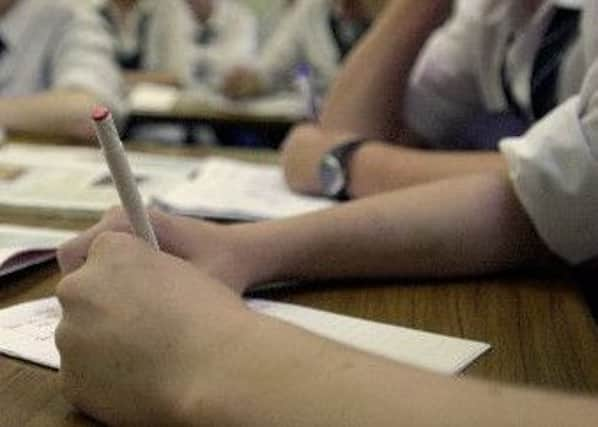Town hall leaders hit back over being judged on the performance of academies


Ofsted’s national report has rated education authority areas on the performance of all state schools in their towns and cities and its chief inspector Sir Michael Wilshaw suggested a lack of political will was to blame for areas with poor results.
However councils have hit back on the issue of underperforming academies.
Advertisement
Hide AdAdvertisement
Hide AdAcademies and free schools are not part of a local education authority and the Local Government Association has said town halls need more powers to be able to improve all state schools.
It comes as Schools Minister Lord Nash told a committee of MPs this morning that “in practice” local councils are not responsible for improving academies.
Ofsted’s national report yesterday warned that there was a large concentration of failing schools in the North and Midlands.
And it named Doncaster as one of 16 authority areas where fewer than 60 per cent of children attend good or outstanding secondary schools, have lower than national GCSE attainment and make less than national levels of expected progress.
Advertisement
Hide AdAdvertisement
Hide AdDoncaster has the lowest number of pupils in Yorkshire who attend a secondary school rated good or outstanding by Ofsted - at just 37 per cent. However all of its secondary schools are now academies - run outside of council control.
The authority’s director of learning, opportunities and skills Damian Allen said: “Doncaster’s position in this league table is unique in that all of our secondary schools are academies. This puts us in a difficult situation where we are accountable for young people’s education outcomes and yet unable to intervene in underperforming academies, as this is the responsibility of the Government’s Regional Schools Commissioner.”
He added: “We are disappointed that the rate of improvement is not as rapid as we would like and are working hard, where we can, to support and challenge schools in a number of key areas.”
These concerns were backed by the Local Government Association (LGA). Coun Roy Perry chairman of the LGA’s children and young people board, said: “Over 80 per cent of council maintained schools are currently rated as good or outstanding by Ofsted, while three times as many councils perform above the national average in terms of progress made by pupils, compared with the largest academy chains. Councils must be regarded as education improvement partners and be allowed to intervene early and use their vast experience, integrity and desire to improve the system.
Advertisement
Hide AdAdvertisement
Hide Ad“Ranking the quality of schools by local authority areas disguises the fact that over 60 per cent of secondary schools are now academies, leaving councils powerless to intervene early and build an improvement programme. It is extremely worrying that over the last three years only 37 per cent of secondary schools have actually improved their Ofsted rating after becoming academies.
“However, with 85 per cent of primary schools maintained by councils, it is good to see that they continue to perform well across the country.
“Academies are spending billions of pounds of public money and it cannot be right that there is no rigorous accountability for those that are ‘coasting’; no clear understanding of what happens when one falls into this category; and no risk assessment in place for those rated as good or above.”
Lord Nash was questioned on the role of council in school improvement when he appeared before the Education Select Committee today.
Advertisement
Hide AdAdvertisement
Hide AdHe said that local councils would retain responsibility for their maintained schools but that in practice they were not responsible for improving academy performance.
Committee member and Labour MP Ian Mearns said that technically councils were also responsible for academies’ performance and were being held to account by Ofsted on that basis.
Lord Nash responded: “Technically maybe, but they are not in practice and that has been made very clear.”